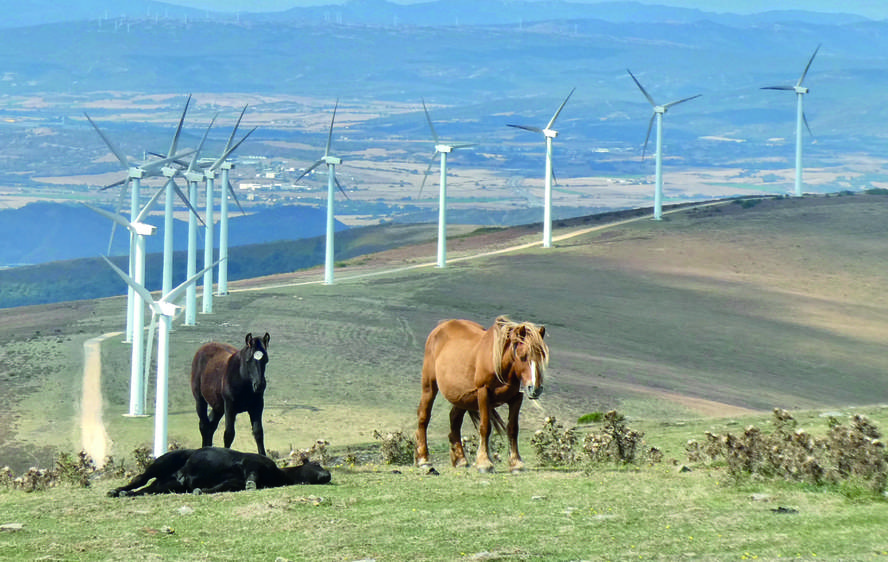Questionnaire for Basque wind mills

Zuzenbidean lizentziatua, Gizarte eta Politika Zientzietan doktorea eta Ekopol ikerketa-taldeko kidea
Are the new quixotes the Basque ecologists? In the last 50 years, in its posters and publications, the symbol of wind turbines has appeared almost always as an alternative and positive character, and now… “on the mountains” we can find flags and banners in different valleys of the Basque Country, lamenting new giant wind generators. What's going on? Where and why does this change come from?
Looking at the map of the Basque Country, we realize that these industrial wind installations are spread by our geography in a very asymmetrical way. Zero at sea and none at North. two in Bizkaia (Abra and Oiz), one in Álava (Badaia) and another on the border with Gipuzkoa and Álava (Elgea-Urkila). In the territory of Navarra we have 32 wind farms. Why so much difference? Why is Navarre wider? Yes, but then there would be 7-8 in Navarra proportionally. Or 25 installations at the CAPV. Where is the collate of that imbalance?
There is another curious fact. The initiatives of these industrial wind facilities were born both in Navarra and in the CAPV of public institutions, but are currently in private hands in both autonomic spaces. Everybody. Why this privatization?
However, the bottom line of the conflict now is not the wind turbines we have, but the ones that will come. Why? Is this not an alternative that ecologists have always claimed? Don't you want to make an energy transition from oil and fossil fuels to renewables?
In my humble opinion, the energy transition, as has happened with sustainable development or participatory democracy, has become a political word, a mere signifier in which every agent introduces what he wants. And in the face of the energy crisis in which we are, and this is denied by few, we find very different and contradictory opinions among the socio-political agents of Euskal Herria. And I think there is no room for democratic debate, no institutional will.
Why is there no planning? Why have so many new projects emerged after the pandemic and there is no question of how much electricity we need? Will the property be public, communal or private? How many wind turbines do we need and where can they be installed? Why on the mountains? According to the CAPV’s “PTS” or not? These questions appear to be a serious sin against the logic of the free market and are not politically correct.
We Basques have a huge ecological debt to other countries. Especially because of the energy resources, the materials we consume and the pollution we generate, like CO2. That is why steps in favour of solar energy are essential to pay that debt.
Last year, our research group organised three round tables with fifteen socio-political actors (institutional, activists, companies, academics…) on the subject of renewable energy. Consensus? The urgency of ending energy dependency, by democratic means and by changing social practices. On the contrary, we found eleven discrepancies directly applicable to the conflict of wind turbines. To simplify, the arguments can slip into three axes. On the one hand, sustainable growth and the need for key-science, where energy is understood as a commodity. In this sense, we can situate the growth and discourse of ecofeminism, where new logics must be sought to radically change the energy model. And halfway through a pragmatic discourse, based on the feasibility of the energy transition, which takes as its starting point the current social model, differentiating the goal and the path. What is the strongest today? The first one certainly. Can the other two be joined together? Maybe.
Why did we learn energy from Brazilian activists long ago? And for whom? They say the main questions are to answer. Do we agree?






